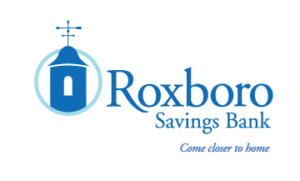IMPORTANT LINKS:
- Cyber Tips for Holiday Shopping
- Identity Theft (FTC)
- Identity Theft Article (FTC)
- FDIC Consumer News
- Financial Abuse of the Elderly
- Internet Gambling
- Privacy Statement
- Mobile Banking Security
WHAT IS IDENTITY THEFT?
Identity Theft is an illegal means of securing an unsuspecting individual’s personal or financial information with the intent of assuming their identity to make transactions or purchases. Identity Theft is a continually increasing crime that attacks unsuspected individuals every day, from all ages, and from different income levels. Statistics provided by the Federal Trade Commission indicate that in 2006 North Carolina exceeded the national average of all other states. It is our goal to educate you, our customer, and assist you from becoming this crime’s next victim. If you feel that you are an unlikely target for identity theft, you might want to think again.
HOW DO THEY GET MY INFORMATION?
There are many different methods that a thief uses to obtain your personal information. Following is a list of examples of some methods currently being used, but is not all inclusive:
- Phishing: Pronounced “fishing”, is an e-mail scam that pretends to be from their bank or retail establishment that attempts to steal their social security numbers, credit card numbers, user ids, nd passwords.
- Vishing: It is a form of phishing except the unsuspecting consumer is provided a telephone number to call in attempt to obtain personal information.
- Skimming: A special device is used when processing your debit or credit transaction that illegally obtains your card number.
- Pretext calling: The scam artist attempts to obtain your personal information from a bank or other retail establishment under false pretenses.
- Dumpster diving: This is when your discarded trash is rummaged through with the intent of obtaining personal information, credit card numbers, or non-destroyed credit offers for illegal use.
- Physical theft: This is perhaps the most common means of Identity Theft. Stolen or lost wallets and purses contain some of the most critical information such as name, address, phone numbers, debit/credit cards, social security cards, passports, and birth certificates.
While the responsibility of protecting personal information is ours alone, it is our hope that the following information will be beneficial in assisting you in the event you become a victim.
WHAT SHOULD I DO IF I SUSPECT THAT I’M A VICTIM?
If you suspect misuse of your personal information to commit fraud, take action immediately. Keep a record of all conversations and correspondence when you take the following suggested steps.
- Contact your financial institution(s) and Credit Card issuers immediately to prevent further exposure to your accounts.
- Contact check verification companies or the bank to request that they notify retailers using their databases, not to accept stolen checks.
- File a police report with your local police department.
- Contact the three major credit bureaus and request a copy of your credit report.
- Check your mailbox for stolen mail. If you suspect mail has been stolen, notify your local post office and police department.
- Maintain a written chronological list of what has happened; what was lost and the steps you took to report the incident to the various agencies, financial institutions and the firms impacted. Contact the Federal Trade Commission to notify their agency of the identity theft incident.
WHERE CAN I GET ANSWERS TO QUESTIONS ABOUT FILING A CLAIM?
The U.S. Federal Trade Commission (FTC) has a website that provides information with regards to Identity Theft. Such information includes: Answers to commonly asked questions
- Instructions on who to contact
- Forms for filing a claim
- Credit Reporting Agency contact information
- Helpful guidance in preventing identity theft
- Tips on how to monitor your credit record
Click here for additional information.
WHAT ARE MY RIGHTS?
The U.S. Federal Trade Commission (FTC) website contains up-to-date information with regards to your individual rights. You can access this information directly from the FTC website by clicking here.
WHAT INFORMATION IS AVAILABLE FOR MY BUSINESS?
Businesses are just as susceptible to identity theft as are individuals, and are required to notify individuals and businesses alike of any personal information breaches that have occurred. Information is available to businesses through the U.S. Federal Trade Commission (FTC) that addresses both types of occurrences. The FTC link also provides model letters that can be used to advise both individuals and other businesses of the compromised information.
You may access the FTC website for this information directly by clicking here.
ROXBORO SAVINGS BANK
FDIC
Equal Housing Lender


